第39章 THE SHADOW OF FATE(4)
To this day the memory of that old rabbi, the court physician, affects me like a nightmare, for of all the medical fools that ever I met he was by far the most pre-eminent. All about the place he followed me suggesting remedies that would have been absurd even in the Middle Ages. The least harmful of them, I remember, was that poor Orme's head should be plastered with a compound of butter and the bones of a still-born child, and that he should be given some filthy compound to drink which had been specially blessed by the priests. Others there were also that would certainly have killed him in half-an-hour.
Well, I got rid of him at last for the time, and returned to my vigil.
It was melancholy work, since no skill that I had could tell me whether my patient would live or die. Nowadays the young men might know, or say that they did, but it must be remembered that, as a doctor, I am entirely superannuated. How could it be otherwise, seeing that I have passed the best of my life in the desert without any opportunity of keeping up with the times.
Three days went by in this fashion, and very anxious days they were.
For my part, although I said nothing of it to any one, I believed that there was some injury to the patient's skull and that he would die, or at best be paralyzed. Quick, however, had a different opinion. He said that he had seen two men in this state before from the concussion caused by the bursting of large shells near to them, and that they both recovered although one of them became an idiot.
But it was Maqueda who first gave me any definite hope. On the third evening she came and sat by Orme for awhile, her attendants standing at a little distance. When she left him there was a new look upon her face--a very joyful look--which caused me to ask her what had happened.
"Oh! he will live," she answered.
I inquired what made her think so.
"This," she replied, blushing. "Suddenly he looked up and in my own tongue asked me of what colour were my eyes. I answered that it depended upon the light in which they might be seen.
"'Not at all,' he said. 'They are always /vi-o-let/, whether the curtain is drawn or no.' Now, physician Adams, tell me what is this colour /vi-o-let/?"
"That of a little wild flower which grows in the West in the spring, O Maqueda--a very beautiful and sweet-scented flower which is dark blue like your eyes."
"Indeed, Physician," she said. "Well, I do not know this flower, but what of that? Your friend will live and be sane. A dying man does not trouble about the colour of a lady's eyes, and one who is mad does not give that colour right."
"Are you glad, O Child of Kings?" I asked.
"Of course," she answered, "seeing that I am told that this captain alone can handle the firestuffs which you have brought with you, and, therefore, that it is necessary to me that he should not die."
"I understand," I replied. "Let us pray that we may keep him alive.
But there are many kinds of firestuffs, O Maqueda, and of one of them which chances to give out violet flames I am not sure that my friend is master. Yet in this country it may be the most dangerous of all."
Now when she heard these words the Child of Kings looked me up and down angrily. Then suddenly she laughed a little in a kind of silent way that is peculiar to her, and, without saying anything, beckoned to her ladies and left the place.
"Very variegated thing, woman, sir," remarked Quick, who was watching.
(I think he meant to say "variable.") "This one, for instance, comes up that passage like a tired horse--shuffle, shuffle, shuffle--for I could hear the heels of her slippers on the floor. But now she goes out like a buck seeking its mate--head in air and hoof lifted. How do you explain it, Doctor?"
"You had better ask the lady herself, Quick. Did the Captain take that soup she brought him?"
"Every drop, sir, and tried to kiss her hand afterward, being still dazed, poor man, poor man! I saw him do it, knowing no better. He'll be sorry enough when he comes to himself."
"No doubt, Sergeant. But meanwhile let us be glad that both their spirits seem to have improved, and if she brings any more soup when I am not there, I should let him have it. It is always well to humour invalids and women."
"Yes, Doctor; but," he added, with a sudden fall of face, "invalids recover sometimes, and then how about the women."